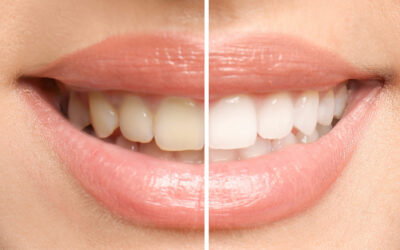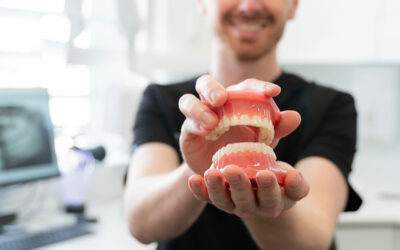
Although we tend to think oral health only affects our mouth, the importance of healthy teeth and gums goes far beyond bad breath.
Preventable oral health diseases such as periodontal disease (gum disease) and tooth decay are some of the most common health problems in Australia and their impact could have serious health implications.
Australia’s National Oral Health Plan 2015-2024 states that “oral health is fundamental to overall health” and “can help lower the risks of associated health problems and other consequences” that can have a negative impact on the quality of life.
These consequences may include:
1. Poor Nutrition
Missing, crooked, or damaged teeth can have a negative impact on chewing ability. Additionally, some oral infections and diseases lead to pain or sensitivity while eating or drinking.
This can cause some individuals to avoid particular foods or drinks, which may limit the amount of nutrition their bodies receive.
In a recent survey of dental care and oral health in Australia, close to 21 percent of adults said they purposely avoid eating certain foods as a result of issues with their teeth.
Poor oral health has been specifically linked to a decreased intake of dietary fibre, vitamin C, folate, beta carotene, and other important nutrients.
2. Sleep Disruptions, Decreased Productivity, and Sleep Apnea
Whether caused by worry, discomfort, pain, or additional factors, subpar oral health may negatively affect sleep in some cases. Sleep issues are thought to be responsible for millions of lost work and school days in Australia each year. Inadequate sleep can impact daytime productivity, resulting in psychological and physical discomfort.
Poor oral health could also be to blame for sleep apnea, a sleep disorder that involves repeated breathing interruptions throughout the night that prevents an individual from getting a truly restful night of sleep.

A dentist can recognise the signs of sleep apnea, such as tooth grinding. Without proper and regular dental checkups, sleep apnea may go undiagnosed and lead to tiredness, lethargy, and other negative health effects.
3. Headaches or Jaw Pain
Jaw joint disorders or a habit of grinding your teeth can lead to side effects such as jaw pain or headaches.
Temporomandibular joint disorders (also referred to as TMJD) restrict jaw movement, sometimes resulting in a “click” or locking of the jaw when you to try to move it. Jaw pain and headaches are a common side effect of this condition.
Teeth grinding can also lead to discomfort and pain. Either way, a dental check-up can help recognise, diagnose, and treat these issues properly. For example, a custom mouthguard can eliminate teeth grinding.
4. Risk of Infection
Injuries to the mouth and oral health issues can leave the mouth susceptible to infections. If oral health problems are ignored, the risk of infection increases, the chance of the infection entering the bloodstream and spreading throughout the body increases, and the risk of being hospitalised also increases.
In fact, oral health conditions are the third most common reason for acute preventable hospital admissions in Australia.
Taking proper preventative measures — including getting a dental check up at the first sign of any issues in or around your mouth — to maintain and improve good oral health may help eliminate the majority of these emergency visits.
Additional Health Issues Linked to Poor Oral Health
A growing body of research suggests that oral diseases such as tooth decay, oral cancer, and gum disease may be linked with a host of health issues including:
- Heart disease
- Heart and lung infections
- Pneumonia
- Stroke
- Rheumatoid arthritis
- Diabetic complications
- Premature birth or low birth weight for pregnant women
Tips for Improving Your Oral Health
The wonderful thing about oral health is that there are a variety of steps you can incorporate into your life (immediately) to start improving the health of your mouth, teeth, and gums and lower your risk of oral diseases.
To maintain or improve your oral health, dentists recommend you:
- Brush your teeth using a fluoride toothpaste at least twice a day for two minutes each time
- Replace your toothbrush (or the head on your electric toothbrush) every three months or after you are sick (germs can remain on your toothbrush and reinfect you in some cases)
- Floss at least once a day to remove plaque or trapped food that your may have toothbrush missed
- Eat a healthy diet
- Avoid sugary foods
- Avoid acidic foods (these can damage or weaken teeth)
- Moderate your alcohol consumption
- Quit smoking
- Drink adequate amounts of water to remain hydrated (fluoridated tap water can hydrate and help protect your teeth at the same time)
- See your dentist for regular check ups so you can catch any problems early, obtain personalised advice, and stay up to date on your oral health assessments
Concerns About Your Dental Health?
If you have questions or concerns about your oral health, please contact our experienced dental team today.






